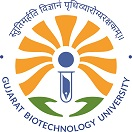
Dr. Ritesh Kumar, PhD
- Postdoctoral researcher: University of Texas Southwestern Medical Center, Texas, USA
- Ph.D.: Department of Biosciences and Bioengineering, IIT Guwahati, India
About
I am a forward-thinking molecular and cellular bioengineering researcher with a strong background in cutting-edge research technology, including CRISPR/Cas9-based genome editing, the generation of transgenic mice, T-cell engineering, RNA sequencing, and CUT&RUN sequencing. I earned my PhD from the Indian Institute of Technology Guwahati. Leveraging my knowledge of biochemical and genome editing technology, I have successfully deciphered the molecular mechanism of cell death in the Leishmania parasite and characterized the enzyme responsible for its apoptotic cell death.
Following my PhD, I pursued postdoctoral training at Baylor Research Institute and UT Southwestern Medical Center in Texas, USA, where I gained significant experience in intestinal inflammation in ulcerative colitis. Employing an epigenetics approach, CRISPR/Cas9-based genome editing, and adoptive cell transfer, I identified the molecular mechanisms of hypoxia and inflammatory gene regulation in ulcerative colitis. Utilizing my expertise in genome editing, I developed knockout and knock-in mice model to understand the regulation of colonic inflammation and colon cancers. Additionally, I established a patient-derived xenograft (PDX) model of colon cancer to evaluate novel chimeric antigen receptor (CAR) T-cell therapy against solid tumors.
Background
- Research Scientist (2022-2023): University of Texas Southwestern Medical Center, Dallas, Texas, USA
- Postdoctoral researcher (2019-2022): University of Texas Southwestern Medical Center, Dallas, Texas, USA
- Postdoctoral researcher (2017-2019): Baylor Research Institute, Dallas, Texas, USA
- Ph.D. (2012-2017): Indian Institute of Technology Guwahati, India
- M.Sc. (2009-2012): Kasturba Medical College, Manipal, India
Honours and Awards
- 2017 Best Poster Award at Research Conclave, IIT Guwahati.
- 2014 Best Poster Award at International Conference on “Future Prospects of Advancements in Biological Sciences, Health Issues & Environmental Protection”, Lucknow.
- 2013 Academic excellence award in M.Sc.
Research Group Overview
My research group at GBU is primarily focused on understanding the molecular mechanisms of innate immune cell responses to host-parasite interactions, particularly in protozoan parasites, and investigating the regulation of inflammasomes during parasitic infections. Employing a proteomics approach, we aim to identify parasite-derived ligands or surface proteins recognized by pattern recognition receptors (PRRs) of host cells. The knowledge gained from these studies will be utilized in the development of vaccines and biomolecular therapeutics targeting parasitic diseases affecting both livestock animals and humans. Additionally, my laboratory is working on cutting edge genome editing technologies to create knock-in, knock-out, and transgenic mouse models, enabling us to elucidate the molecular mechanisms of human and animal diseases.
Publications
- Singh AK, Kumar R, Yin J, Brooks JF, Kathania M, Mukherjee S, Kumar J, Conlon KP, Basrur V, Chen Z, Han X, Hooper LV, Burstein E, Venuprasad K. RORγt-Raftlin1 complex regulates the pathogenicity of Th17 cells and intestinal inflammation. Nature communications 2023 Aug 17;14(1):4972. Impact factor: 17.694
- Kathania M, Kumar R, Tsakem EL, Basrur V, Theiss AL, Chernoff J, Venuprasad K. Pak2-mediated phosphorylation promotes RORγt ubiquitination and inhibits colonic inflammation. Cell Reports 2022 Sep;40: 111345. Impact factor: 9.995
- Kumar R, Theiss AL, Venuprasad K. RORγt protein modifications and IL-17-mediated inflammation. Trends in Immunology. 2021 Nov;42(11):1037-1050. Impact factor: 18.2
- Kumar J, Kumar R, Kumar Singh A, Tsakem EL, Kathania M, Riese MJ, Theiss AL, Davila ML, Venuprasad K. Deletion of Cbl-b inhibits CD8+T-cell exhaustion and promotes CAR T-cell function. Journal for ImmunoTherapy of Cancer. 2021 Jan;9(1):e001688. Impact factor: 10.9
- Kumar R, Singh AK, Starokadomskyy P, Luo W, Theiss AL, Burstein E, Venuprasad K. Cutting Edge: Hypoxia-Induced Ubc9 Promoter Hypermethylation Regulates IL-17 Expression in Ulcerative Colitis. Journal of Immunology. 2021 Mar 1;206(5):936-940. Impact factor: 5.422
- Mukherjee S, Kumar R, Tsakem Lenou E, Basrur V, Kontoyiannis DL, Ioakeimidis F, Mosialos G, Theiss AL, Flavell RA, Venuprasad K. Deubiquitination of NLRP6 inflammasome by Cyld critically regulates intestinal inflammation. Nature Immunology. 2020 Jun;21(6):626-635. Impact factor: 30.5
- Kumar R, Tiwari K, Dubey VK. Methionine aminopeptidase 2 is a key regulator of apoptotic like cell death in Leishmania donovani. Scientific Reports. 2017 Mar 7;7(1):95. Impact factor: 4.6

